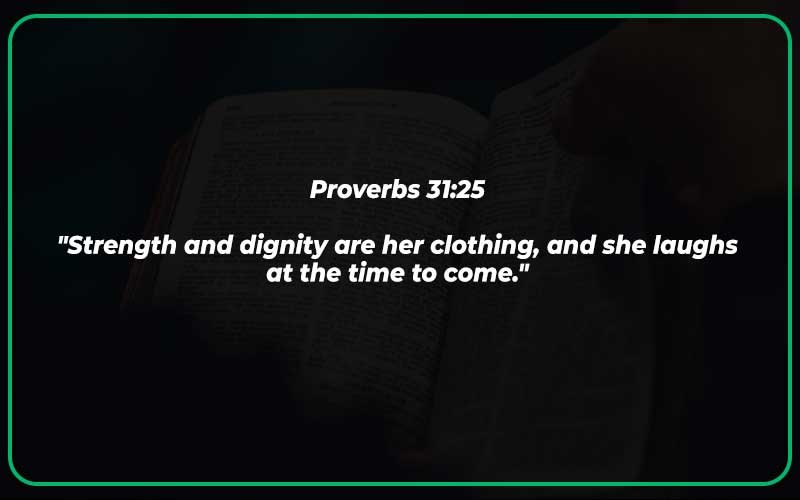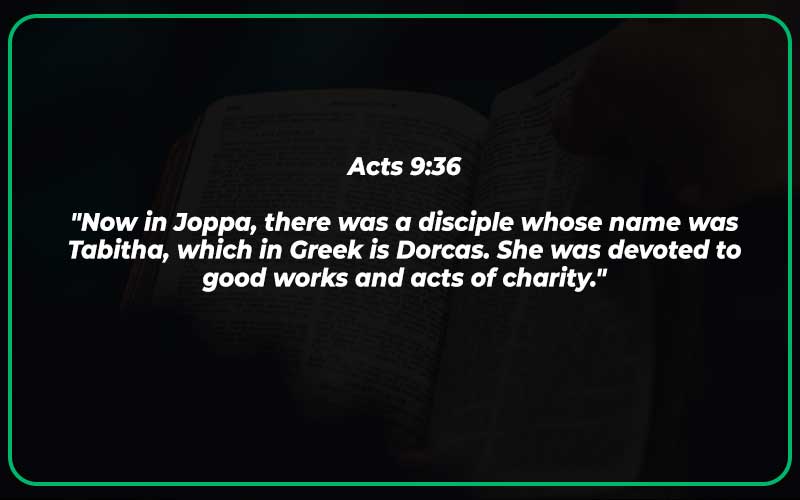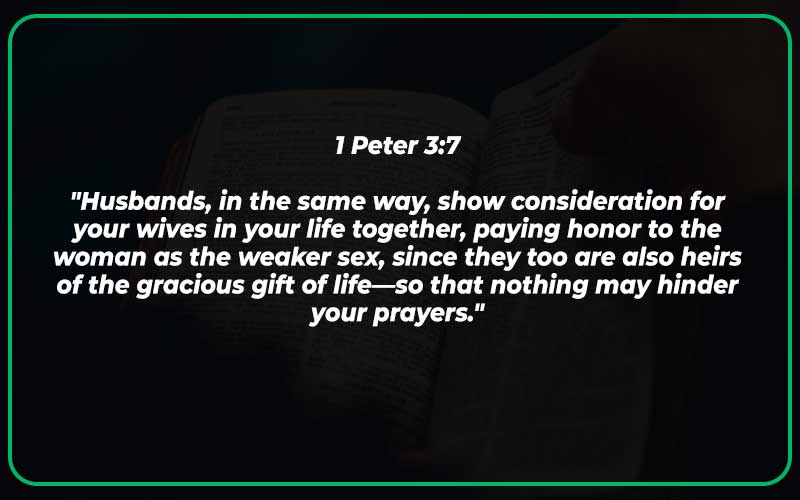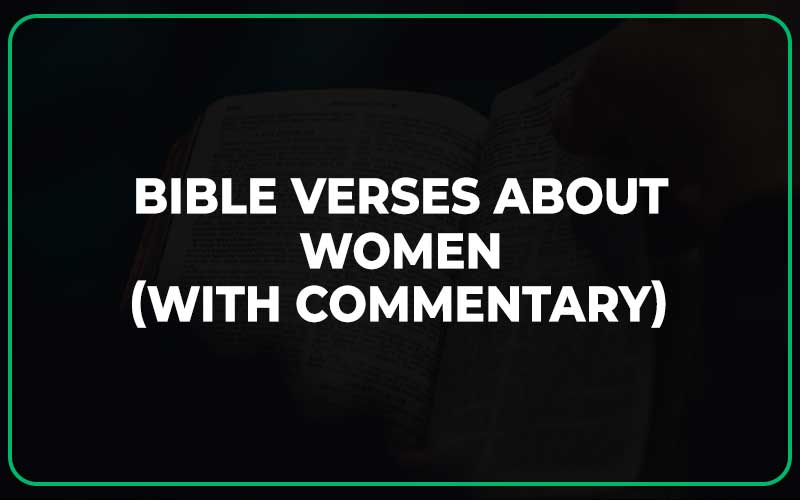Discovering the empowering wisdom within ancient texts can be both enlightening and invigorating. In a world where women’s roles and rights have evolved tremendously, delving into what the Bible says about women can offer intriguing insights.
From fierce leaders and nurturing caregivers to inspirational figures, the Bible’s portrayal of women is diverse and multi-faceted. In this captivating exploration, we’ll uncover verses that celebrate women’s strength, resilience, and significance.
These verses not only shed light on the historical context of their times but also resonate with the modern quest for gender equality and empowerment.
Whether you’re seeking spiritual guidance, historical perspective, or simply a fresh appreciation for the women who shaped biblical narratives, this journey through scripture will provide a deeper understanding of the roles women have played and continue to play in shaping our world.
Also Read: Top 25 Bible Verses About Praise and Thanksgiving (With Commentary)
Bible Verses About Women
1. Genesis 2:18
“Then the Lord God said, ‘It is not good that the man should be alone; I will make him a helper as his partner.’”
In this verse, we see that God recognizes the need for companionship and assistance for Adam. He created Eve as a suitable and complementary partner for him. This verse highlights the significance and value of women as essential helpers and supports in relationships and society.
2. Proverbs 31:10
“A capable wife, who can find? She is far more precious than jewels.”
This verse praises the qualities and virtues of a capable wife. It emphasizes the immeasurable worth and value of a woman who possesses qualities like integrity, wisdom, strength, and compassion. It recognizes that such women deserve to be cherished and valued greatly.
3. Proverbs 31:30
“Charm is deceitful, and beauty is vain, but a woman who fears the Lord is to be praised.”
This verse highlights the importance of inner qualities and character over outward appearances. It emphasizes that true beauty and worth come from a woman’s reverence for God and her commitment to living a righteous life. Such women should be recognized and honored for their faithfulness and devotion to God.
4. Ecclesiastes 7:26
“I find more bitter than death the woman who is a snare, whose heart is a trap, and whose hands are chains. The man who pleases God will escape her, but the sinner she will ensnare.”
This verse serves as a cautionary reminder that not all women are virtuous or righteous. It warns against women who use their charm and influence to deceive and manipulate others. It tells us that it is better to seek a God-fearing and righteous woman whose company leads to spiritual growth.
5. Proverbs 14:1
“The wise woman builds her house, but the foolish tears it down with her own hands.”
This verse highlights the impact women have on their homes and families. It emphasizes the importance of wisdom, discernment, and sound decision-making in a woman’s role as a builder and nurturer of the household. It warns against destructive actions that can harm those within the home.
6. 1 Peter 3:1
“Likewise, wives, be subject to your own husbands, so that even if some do not obey the word, they may be won over without a word by the conduct of their wives.”
This verse addresses the role of wives in marriage and encourages them to display respectful behavior towards their husbands, even if they are not yet believers. It implies that a woman’s virtuous conduct, coupled with her commitment to Christ, can have a positive influence on her husband’s spiritual journey.
7. Proverbs 12:4
“A wife of noble character is her husband’s crown, but a disgraceful wife is like decay in his bones.”
This verse emphasizes the significance of a wife’s character in a marital relationship. It underscores the positive impact a virtuous and honorable wife has on her husband’s life, bringing him honor and pride. Conversely, a wife who brings shame and disrespect to her husband brings detriment to his well-being.
8. 1 Timothy 2:9-10
“I also want the women to dress modestly, with decency and propriety, adorning themselves, not with elaborate hairstyles or gold or pearls or expensive clothes, but with good deeds, appropriate for women who profess to worship God.”
This verse instructs women to prioritize inner beauty and modesty over outward adornment. It encourages them to focus on displaying good works and a godly character rather than seeking attention through extravagant attire or outward appearance.
Also Read: Top 25 Verses In The Bible About Women’s Role (With Commentary)
9. Proverbs 31:25
“Strength and dignity are her clothing, and she laughs at the time to come.”
This verse portrays a woman of strength and confidence. It emphasizes the importance of a woman’s dignity, resilience, and trust in God’s providence. Such qualities enable her to face the future without fear, finding joy and contentment in the knowledge that God is with her.

10. Matthew 28:5-6
“But the angel said to the women, ‘Do not be afraid; I know that you are looking for Jesus who was crucified. He is not here; for he has been raised, as he said. Come, see the place where he lay.’”
This verse tells the story of the women who discovered the empty tomb after Jesus’ resurrection. It highlights the crucial role of women in witnessing and spreading the good news of Jesus’ resurrection. It serves as a reminder that God values women as active participants in His redemptive plan.
11. Ruth 1:16
“But Ruth said, ‘Do not press me to leave you or to turn back from following you! Where you go, I will go; where you lodge, I will lodge; your people shall be my people, and your God my God.’”
This verse displays the loyalty and devotion of Ruth, a Moabite woman, towards her mother-in-law, Naomi. It demonstrates the sacrificial love and commitment that can exist between women and their family members. Ruth’s love for her mother-in-law ultimately leads her into a significant role in the lineage of Jesus.
12. Luke 2:36-37
“There was also a prophet, Anna, the daughter of Phanuel, of the tribe of Asher. She was very old; she had lived with her husband seven years after her marriage, and then was a widow until she was eighty-four. She never left the temple but worshiped night and day, fasting and praying.”
This verse introduces Anna, a devout woman who dedicated her life to serving God in the temple after being widowed. It highlights the faithfulness and devotion of women in their pursuit of God. Anna’s example inspires women to worship, serve, and pray diligently.
13. Luke 8:2-3
“…and also some women who had been cured of evil spirits and infirmities: Mary, called Magdalene, from whom seven demons had gone out, and Joanna, the wife of Herod’s steward Chuza, and Susanna, and many others, who provided for them out of their resources.”
This verse mentions several women who provided financial support for Jesus and his disciples. It illustrates the active involvement of women in Jesus’ ministry and highlights their generosity and devotion. These women show that their role in serving God is not limited to traditional expectations but can extend through various means.
14. Luke 10:38-42
“Now as they went on their way, he entered a certain village, where a woman named Martha welcomed him into her home. She had a sister named Mary, who sat at the Lord’s feet and listened to what he was saying. But Martha was distracted by her many tasks; so she came to him and asked, ‘Lord, do you not care that my sister has left me to do all the work by myself? Tell her then to help me.’ But the Lord answered her, ‘Martha, Martha, you are worried and distracted by many things; there is need of only one thing. Mary has chosen the better part, which will not be taken away from her.’”
This passage presents the contrast between Martha and Mary, emphasizing Mary’s choice to prioritize sitting at the feet of Jesus and listening to his teachings. It reminds us that our relationship with God should not be hindered by distractions or busyness. Women, like Mary, can seek intimacy with Jesus and pursue spiritual growth.
15. Acts 9:36
“Now in Joppa, there was a disciple whose name was Tabitha, which in Greek is Dorcas. She was devoted to good works and acts of charity.”
This verse introduces Tabitha (Dorcas), a woman known for her charitable deeds and selfless acts of kindness. It highlights the impact women can have in their communities through service and compassion. Tabitha’s example encourages women to use their gifts and resources to bless others.

16. Acts 16:14-15
“A certain woman named Lydia, a worshiper of God, was listening to us; she was from the city of Thyatira and a dealer in purple cloth. The Lord opened her heart to listen eagerly to what was said by Paul. When she and her household were baptized, she urged us, saying, ‘If you have judged me to be faithful to the Lord, come and stay at my home.’ And she prevailed upon us.”
This verse introduces Lydia, a successful businesswoman who responded to the message of the gospel with an open and receptive heart. It reveals the impact of her faithfulness and her desire to extend hospitality to Paul and his companions. Lydia’s story demonstrates the influence women can have when they embrace the gospel and use their resources to advance God’s kingdom on earth.
17. Romans 16:1-2
“I commend to you our sister Phoebe, a deacon of the church at Cenchreae, so that you may welcome her in the Lord as is fitting for the saints, and help her in whatever she may require from you, for she has been a benefactor of many and of myself as well.”
This verse introduces Phoebe, a woman who is commended for her service as a deacon in the early church. It highlights the valuable contributions women can make in leadership roles within the church community. Phoebe’s example challenges traditional gender roles and demonstrates that women have played integral roles in ministering to and supporting the early Christian communities.
18. Galatians 3:28
“There is no longer Jew or Greek, there is no longer slave or free, there is no longer male and female; for all of you are one in Christ Jesus.”
This verse declares the equality and unity that believers share in Christ. It asserts that in the eyes of God, there are no divisions or distinctions based on gender or social status. This verse is not only relevant to the topic of women but affirms the equal worth and value of all individuals in Christ, emphasizing the importance of unity and mutual respect.
19. 1 Corinthians 11:11-12
“Nevertheless, in the Lord woman is not independent of man or man independent of woman. For just as woman came from man, so man comes through woman; but all things come from God.”
This verse establishes the interdependence and equal importance of men and women in God’s design. It recognizes that both genders have roles and contributions that are intertwined and interconnected. It affirms the equal value and significance of men and women, emphasizing that they are mutually dependent on one another and ultimately originated from God.
20. Ephesians 5:22-24
“Wives, be subject to your husbands as you are to the Lord. For the husband is the head of the wife just as Christ is the head of the church, the body of which he is the Savior. Just as the church is subject to Christ, so also wives ought to be, in everything, to their husbands.”
This verse addresses wives and their relationship to their husbands. It emphasizes the concept of submission within the marital relationship, comparing it to the submission of the church to Christ. While this verse can be interpreted differently, it is important to note that submission is not synonymous with inferiority or oppression. Rather, it refers to a voluntary act of respect and cooperation within the marriage covenant.
21. Ephesians 5:25
“Husbands, love your wives, just as Christ loved the church and gave himself up for her.”
This verse instructs husbands to love their wives sacrificially, using Christ’s love for the church as the ultimate example. It calls husbands to selflessness, honor, and devotion toward their wives. This verse reminds us that biblical teaching on marriage equally addresses the responsibilities and behaviors of both husbands and wives, emphasizing mutual love and respect.
22. Titus 2:3-5
“Likewise, tell the older women to be reverent in behavior, not to be slanderers or slaves to drink; they are to teach what is good, so that they may encourage the young women to love their husbands, to love their children, to be self-controlled, chaste, good managers of the household, kind, being submissive to their husbands, so that the word of God may not be discredited.”
This verse highlights the important role of older women in guiding and mentoring younger women in matters of faith, family, and character. It outlines various virtues and qualities that women should aspire to develop. Far from oppressive, these teachings emphasize the value and stability that comes from nurturing healthy relationships, wise stewardship, and a commitment to godly living.
23. 1 Peter 3:7
“Husbands, in the same way, show consideration for your wives in your life together, paying honor to the woman as the weaker sex, since they too are also heirs of the gracious gift of life—so that nothing may hinder your prayers.”
This verse addresses husbands and encourages them to show honor, respect, and understanding to their wives. It emphasizes the importance of treating wives as equals, acknowledging their God-given dignity and worth. By recognizing and valuing their wives as fellow heirs of God’s grace, husbands can ensure that their prayers are not hindered and that their marriage is built on love and mutual respect.

24. Proverbs 31:26
“She opens her mouth with wisdom, and the teaching of kindness is on her tongue.”
This verse praises the wise and kind words that can come from a woman’s mouth. It emphasizes the impact of a woman’s speech on her family, community, and relationships. It encourages women to use their words to build up, encourage, and teach others in a manner that reflects God’s wisdom and love.
25. Psalm 139:13-14
“For it was you who formed my inward parts; you knit me together in my mother’s womb. I praise you, for I am fearfully and wonderfully made. Wonderful are your works; that I know very well.”
While not explicitly about women, this verse celebrates the unique and deliberate creation of each individual by God. It applies to both men and women, emphasizing the intrinsic value and worth of every person. It reminds women that they are fearfully and wonderfully made by the Creator, with purpose and significance in the world. This verse invites gratitude and awe for God’s incredible workmanship.
What Does the Bible Say About Women?
The Bible’s perspective on women is complex and diverse, reflecting the cultural and historical context of the times in which its various books were written. There are a range of passages that depict women in various roles and situations, spanning from positions of strength and leadership to more traditional roles within the family and community.
Old Testament: In the Old Testament, women like Sarah, Rebekah, and Deborah are portrayed as strong and influential figures. Deborah, for instance, served as a judge and prophetess, leading the Israelites in battle. However, the Old Testament also contains instances where women are subject to cultural norms of their time, such as being treated as property or taking on traditional domestic roles.
New Testament: The New Testament introduces a different perspective. Women played important roles in the life of Jesus Christ, often being among his followers and supporters. The accounts of Mary, Jesus’ mother, and Mary Magdalene are prominent examples. The apostle Paul’s writings can be interpreted in different ways; some passages emphasize a complementary role for women in the church, while others emphasize their equality in Christ.
Evolving Interpretations: Interpretations of these passages have evolved over time, influenced by cultural shifts and changing societal norms. Some view certain passages as culturally bound, while others emphasize the underlying principles of respect, love, and equality that can be extracted from the Bible’s teachings.
Challenges and Progress: It’s important to note that the Bible has been used both to support gender equality and to justify the subordination of women. Throughout history, various movements have emerged to challenge traditional interpretations and advocate for a more inclusive understanding of women’s roles in both religious and secular contexts.
In summary, the Bible’s depiction of women is multifaceted, reflecting the historical and cultural contexts of its time. Interpretations vary, and discussions about women’s roles continue to evolve, incorporating a broader understanding of equality and human dignity.

